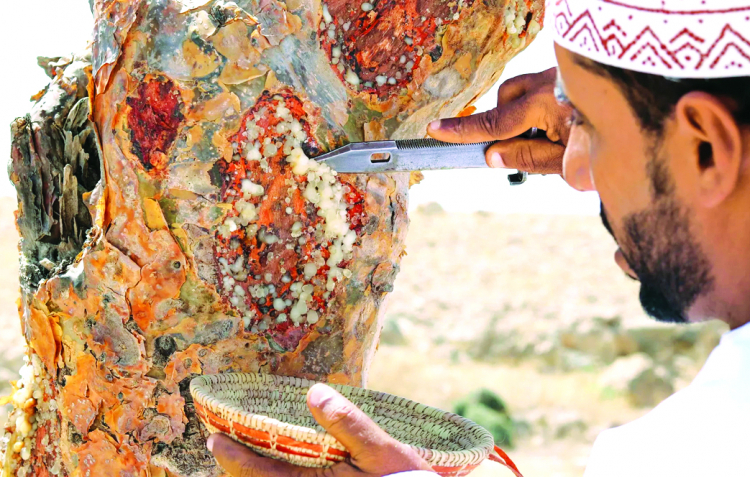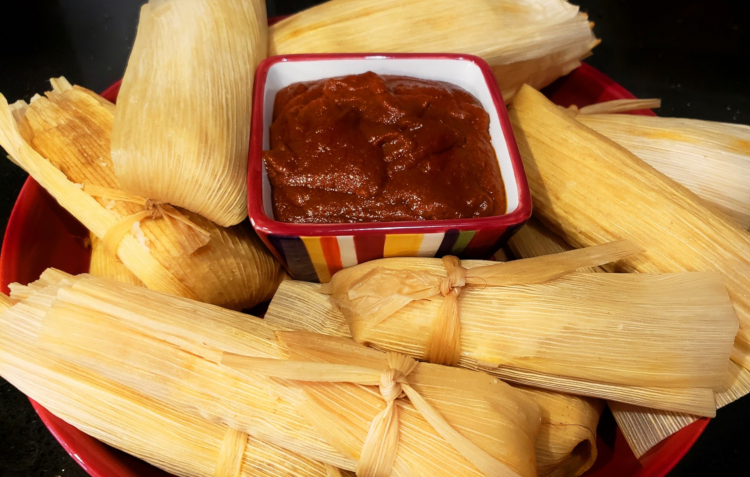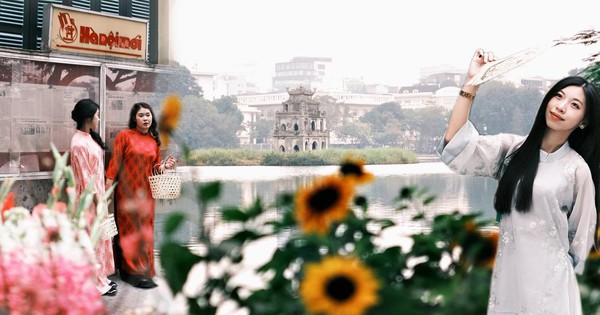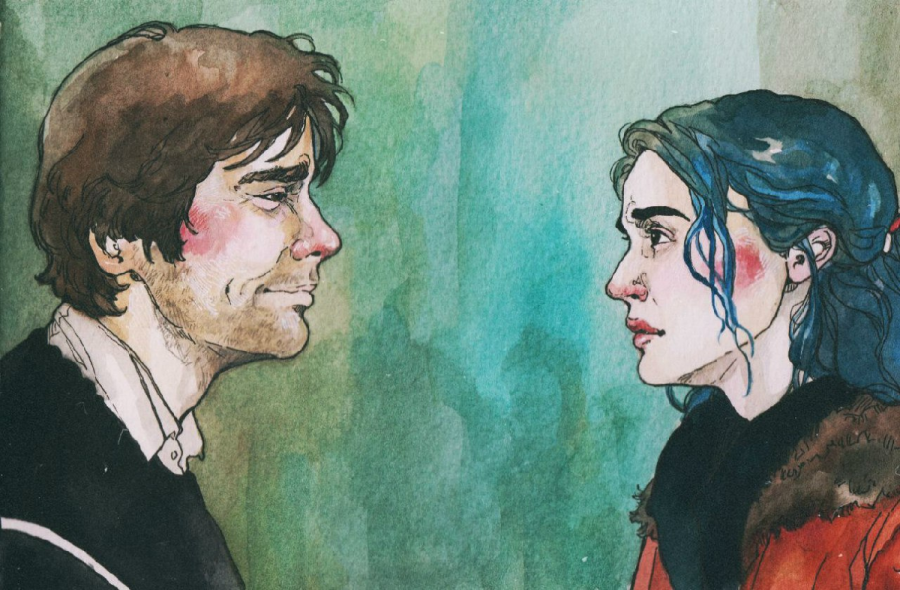From ancient harbors where ships laden with incense once sailed, to rock-strewn canyons where paperbark trees still grow, a host of UNESCO-listed attractions within 180km of Salalah will helps visitors explore the 5,000-year history of this city.
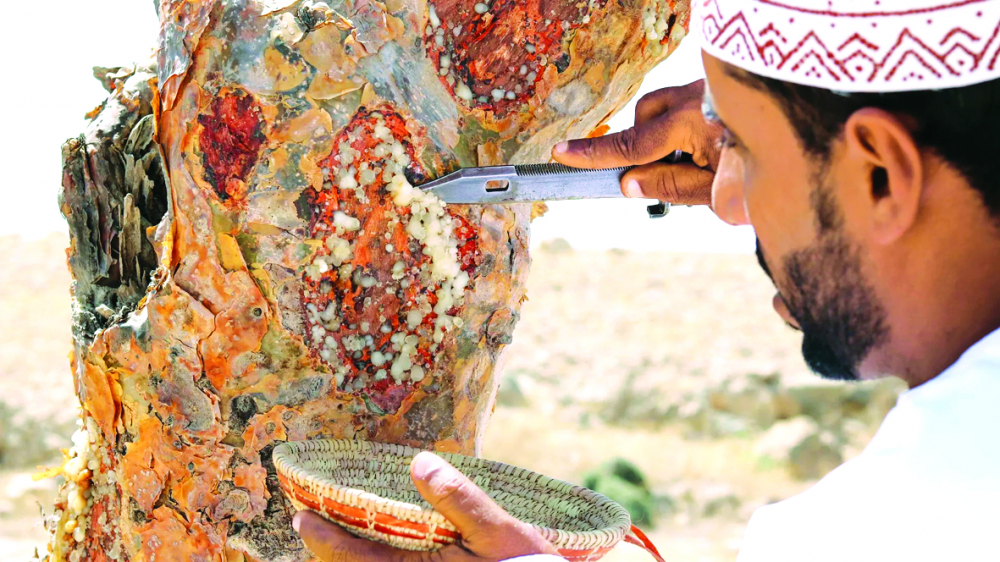 |
| A local guide is collecting agarwood resin in Wadi Dawkah – Photo: Anantara |
Salalah is the second city of Oman, located deep on the south coast, 100km from Yemen. This was once an indispensable port on the silk, spice and agarwood routes. Today, this city is known as the perfume capital of Arabia, home of the most valuable agarwood tree in the world – Boswellia Sacra.
Agarwood is a resin extracted from the Boswellia Sacra tree. Quality is based on purity, aroma, age, shape and color. The transparent silver-like color originating from Salalah is recognized as the best. It was more valuable than gold in ancient times. The resin is burned as incense or distilled into oil for many uses. Although also native to Yemen and Somalia, this plant is most commonly found in Oman and played an important role in turning the region into a prosperous trade center in the ancient world.
East of Salalah are the ruins of the ancient port of Khor Rori, also known as Sumhuram, and the legendary palace of the queen of Sheba. Overlooking the beach and natural harbor, it was once a trading post for the then-thriving nation and a landmark on the Agarwood Road. This was the arrival and departure point for caravans on sailing ships bound for the Mediterranean, India and other Eastern kingdoms. Sumhuram was recognized by UNESCO as a world heritage site in 2000.
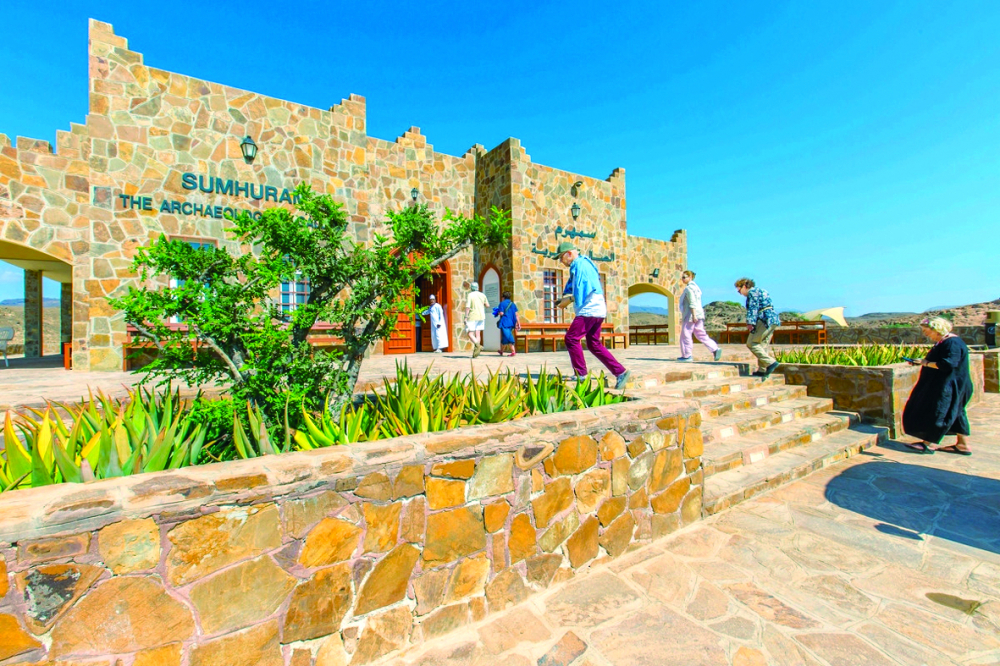 |
| Sumhuram is located east of Salalah, a world heritage site recognized by UNESCO in 2000 – Photo source: Oman Magazine |
Wadi Dawkah is located about 40km north of Salalah, a famous natural park with a density of agarwood trees spread over an area of 5km2 . This place has also been recognized by UNESCO as a world heritage site.
Wadi Dawkah is the habitat of the Boswellia Sacra agarwood variety. Many tourists from around the world come to Salalah to see agarwood trees. In previous figures, there were only 1,200 old trees in Wadi Dawkah. To increase numbers and protect Oman’s heritage, the government built an agarwood farm and developed a visitor center at the site, in partnership with luxury perfume brand Amouage. As the caretaker of agarwood trees, Amouage ensures the harvest is sustainable and managed.
The Land of Agarwood Museum at Al Baleed Archaeological Park is one of the prominent cultural landmarks, about 5km from Salalah city center. Visitors can discover how the agarwood trade and maritime power ensured the region prospered in the 12th century.
Haffah Souq is the oldest traditional market in Salalah. The market is famous for its variety of rare and high-quality local agarwood, including hawjari, considered the best in the world. Visitors can purchase high-quality agarwood in a variety of forms, including agarwood essential oil praised for its cosmetic and health benefits, perfumes, and even agarwood-flavored honey and ice cream.
Thien Cu
[yeni-source src=”” alt_src=”https://www.phunuonline.com.vn/xu-tram-huong-ngan-nam-a1514476.html” name=””]

